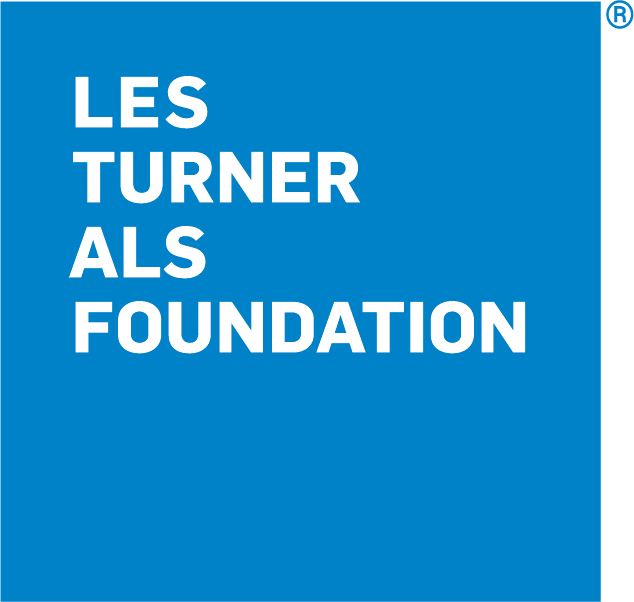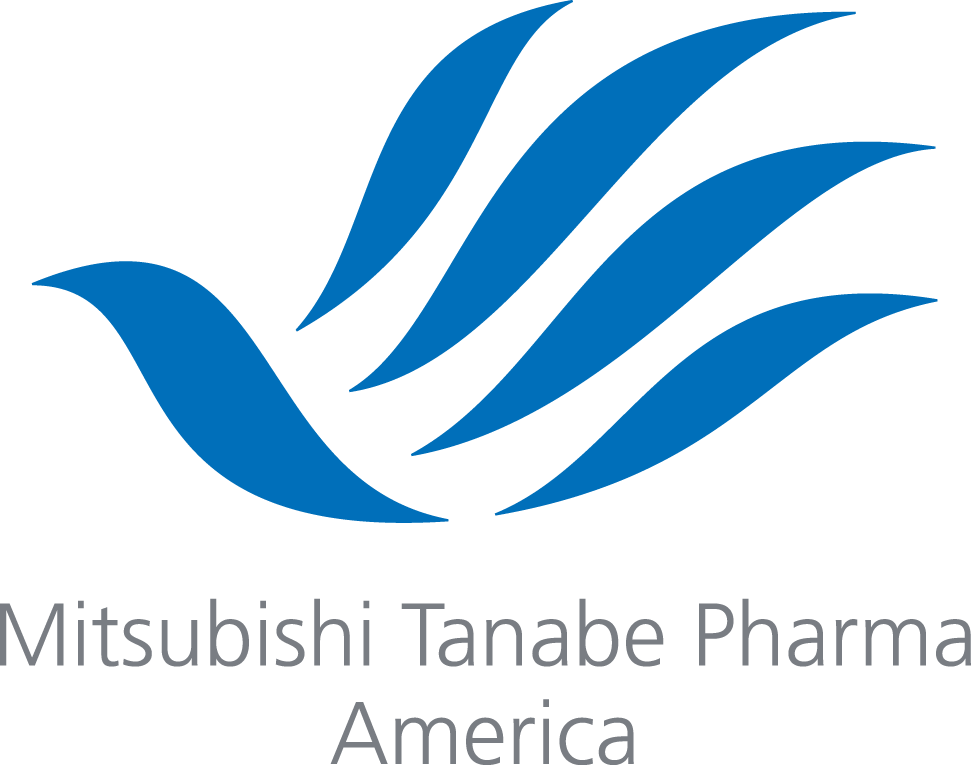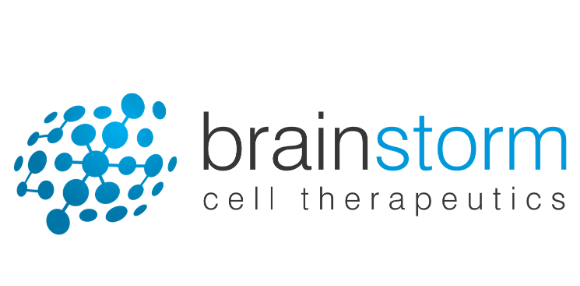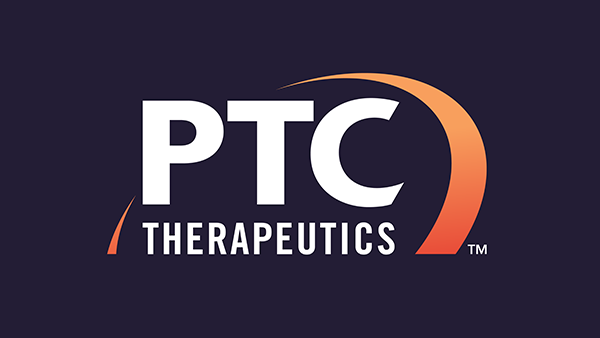Les Turner ALS Center at Northwestern Medicine
Les Turner Symposium on ALS 2022
For 12 years, the Les Turner Symposium on ALS has featured presentations from leading ALS scientists and clinicians, as well as people living with ALS; plus research posters, a Q&A panel and more. The symposium is free and open to the public, with thanks to our generous sponsors.
We invite you to review the program and watch recordings of the 2022 presentations below, or explore past symposia.
Keynote Presentation: Using Human Induced Pluripotent Stem Cells as a Platform for Understanding ALS Mechanisms and Designing Therapeutics
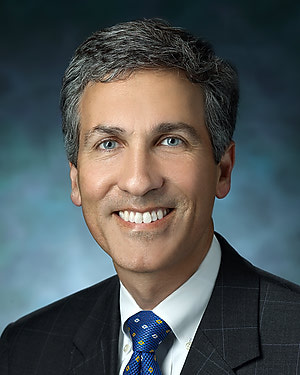
Induced pluripotent stem cells from ALS patients are increasingly used to understand the fundamental pathways by which ALS may start and progress. These cells have great versatility as they can be turned into a number of different cell subtypes of the brain and spinal cord. However, there are challenges in using these cells that remain. Nevertheless, using these cells as a platform for drug screening may give us a window into the different mechanisms by which ALS causes unique symptoms in patients and may help us refine individualized therapeutics.
Nicholas Maragakis, MD, is the Medical Director of the Johns Hopkins ALS Clinical Trials Unit and Director of the ALS Center for Cell Therapy and Regeneration Research and Professor of Neurology at Johns Hopkins University. The Center for ALS Specialty Care at Johns Hopkins is a world-recognized leader in providing medical care and offering the latest in clinical trials and therapies to people living with ALS.
A common theme to Dr. Maragakis’s research is the study of astrocyte biology and its role in disease pathogenesis, with a particular emphasis on how astrocytes may contribute to ALS.
His laboratory, in collaboration with others, has been interested in the development of induced pluripotent stem cells from ALS patients. His laboratory has created numerous iPS cell lines from familial and sporadic ALS patients as well as controls. His latest efforts have focused upon characterizing iPSC-derived motor neurons and astrocytes both in vitro and in vivo with an effort towards understanding disease mechanisms; in particular, modeling ALS disease heterogeneity with regard to disease progression.
Dr. Maragakis has also been heavily involved in clinical research as the principal investigator, site principal investigator, or co-investigator of numerous clinical trials in ALS, many coordinated by the Northeast ALS Consortium, for which he has served as an Executive Board member and where he is currently a member of the Scientific Advisory Board.
Presentation Speakers
Frank Granata
Prior to his ALS diagnosis, Frank Granata was a successful finance executive whose work took him around the world. Frank was diagnosed with ALS in 2020 at the Lois Insolia ALS Clinic at the Les Turner ALS Center at Northwestern Medicine. He takes an active approach in his care and regularly uses humor, the support of his family and the Les Turner ALS Foundation’s Support Services to get through the challenges of living with ALS. We are grateful to have Frank share his story about living with ALS, the impact that the disease has on his life, and his hope for research.
Metabolic Rewiring in Models of Familial ALS
Robert Kalb, MD
 Mitochondrial dysfunction has been seen in nervous system tissues from ALS patients and innumerable models of ALS. Reduced generation of ATP from sick mitochondria provides the impetus for neurons to undertake countermeasures to align energy supply with demand. In this presentation, Dr. Kalb will describe how investigations of fuel utilization in cortical neurons expressing two different familial ALS-causing genes reveal alterations in the operation of glycolysis and the Krebs cycle with little observable effects on ATP production and redox state. He will also describe how manipulations of intermediary metabolism promote the survival of motor neurons in vitro, and he will posit that small molecules that affect fuel utilization by neurons may be a rational therapeutic approach for ALS patients.
Mitochondrial dysfunction has been seen in nervous system tissues from ALS patients and innumerable models of ALS. Reduced generation of ATP from sick mitochondria provides the impetus for neurons to undertake countermeasures to align energy supply with demand. In this presentation, Dr. Kalb will describe how investigations of fuel utilization in cortical neurons expressing two different familial ALS-causing genes reveal alterations in the operation of glycolysis and the Krebs cycle with little observable effects on ATP production and redox state. He will also describe how manipulations of intermediary metabolism promote the survival of motor neurons in vitro, and he will posit that small molecules that affect fuel utilization by neurons may be a rational therapeutic approach for ALS patients.
Robert Kalb, MD, is director of the Les Turner ALS Center at Northwestern University and chief of the Neuromuscular Disease Division in the Ken & Ruth Davee Department of Neurology at the Northwestern University Feinberg School of Medicine, where he is also the Joan and Paul Rubschlager professor of neurology. Kalb’s research uses a cell and molecular biology approach and focuses on two topics: 1.) activity-dependent development of circuits in the central nervous system and 2.) healthful compensatory responses of cells and organisms to stressful conditions. The Kalb Lab uses genetically manipulated mice, primary neuron tissue culture and C. elegans in its studies.
Improving the Health of Upper Motor Neurons is Crucial for Developing Effective Treatment Strategies in ALS
Hande Ozdinler, PhD
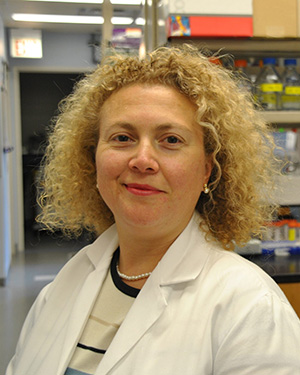 Movement starts in the brain. The brain component of motor neuron circuitry is responsible for the initiation and modulation of voluntary movement, which is impaired in ALS patients. ALS is characterized by the loss of both upper and lower motor neurons and progressive degeneration of the motor neuron circuitry. Developing effective and long-term treatment strategies requires that we also include the cortical component into the picture. The Ozdinler Lab is developing novel drug discovery platforms, identifying novel upper motor neuron biomarkers and gene therapy approaches to improve the health of diseased upper motor neurons, so that better and more effective treatment strategies can be developed.
Movement starts in the brain. The brain component of motor neuron circuitry is responsible for the initiation and modulation of voluntary movement, which is impaired in ALS patients. ALS is characterized by the loss of both upper and lower motor neurons and progressive degeneration of the motor neuron circuitry. Developing effective and long-term treatment strategies requires that we also include the cortical component into the picture. The Ozdinler Lab is developing novel drug discovery platforms, identifying novel upper motor neuron biomarkers and gene therapy approaches to improve the health of diseased upper motor neurons, so that better and more effective treatment strategies can be developed.
Hande Ozdinler, PhD, is an associate professor of neurology (neuromuscular disease) in the Ken & Ruth Davee Department of Neurology at the Northwestern University Feinberg School of Medicine. Ozdinler’s research aims to understand the cellular and molecular mechanisms responsible for early vulnerability and progressive degeneration of upper motor neurons. These neuron populations are clinically relevant as their degeneration leads to diseases such as HSP, PLS, and — with their degeneration of spinal motor neurons — ALS. The Ozdinler Lab also works toward building effective treatment strategies, developing drug discovery platforms that incorporate upper motor neurons, and the identification of biomarkers and early detection markers.
New Insights Into Disease Mechanisms of Genetic ALS
Evangelos Kiskinis, PhD

The discovery of the hexanucleotide repeat expansion in C9orf72 (C9-HRE) as the most prevalent genetic driver of ALS/FTD has stimulated intense interest in deciphering the pathophysiology associated with this mutation. The focus of this presentation will be on the interaction between dipeptide proteins generated from the C9-HRE and their toxic interaction with RNA. Dr. Kiskinis will describe the design and synthesis of a novel RNA mimetic molecule that can inhibit these C9-HRE neurodegenerative effects.
Evangelos Kiskinis, PhD, is an assistant professor of neurology and neuroscience at Northwestern University Feinberg School of Medicine and a New York Stem Cell Foundation Robertson Investigator. Kiskinis earned a PhD from Imperial College London and carried out postdoctoral training at Harvard University, where he pioneered the first models of ALS using personalized stem cell-based approaches. In 2015, his laboratory was established at the Les Turner ALS Center at Northwestern. The Kiskinis Lab seeks to harness the power of pluripotent stem cells to understand how neuronal function is impaired in ALS/FTD patients as well as identify points of targeted and effective therapeutic intervention for ALS/FTD. Kiskinis also serves as the scientific director of the Stem Cell Core Facility at Northwestern.
Neuroimaging Insights Into the Pathogenesis of UMN-Predominant ALS Subtypes
Erik P. Pioro, MD, PhD
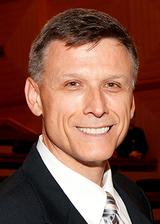 Multiple genetic causes of ALS point to diverse mechanisms in hereditary and nonhereditary (sporadic) forms of disease. Therefore, therapies may be most effective if personalized for differing subtypes/causes of ALS. Routine brain MRI studies have identified a unique signature in the brain of a subset of ALS patients who are younger and have more rapid disease progression. Dr. Pioro’s specialized MRI studies have demonstrated distinct patterns of brain degeneration in such patients, suggestive of differing disease mechanisms. This presentation will review these findings and demonstrate how future imaging/laboratory studies may elucidate related molecular changes to guide development of future therapies.
Multiple genetic causes of ALS point to diverse mechanisms in hereditary and nonhereditary (sporadic) forms of disease. Therefore, therapies may be most effective if personalized for differing subtypes/causes of ALS. Routine brain MRI studies have identified a unique signature in the brain of a subset of ALS patients who are younger and have more rapid disease progression. Dr. Pioro’s specialized MRI studies have demonstrated distinct patterns of brain degeneration in such patients, suggestive of differing disease mechanisms. This presentation will review these findings and demonstrate how future imaging/laboratory studies may elucidate related molecular changes to guide development of future therapies.
Erik P. Pioro, MD, PhD, is medical director of the neuromuscular division and vice chair of translational neurology in the Ken & Ruth Davee Department of Neurology at Northwestern University Feinberg School of Medicine, where he is also the Lewis John Pollack professor of neurology. Here, he specializes in the clinical care and research of adult neurologic patients with motor neuron diseases, particularly ALS. His translational research focuses on characterizing the neuroimaging (MRI and PET) abnormalities in the brain and spinal cord of people living with ALS as well as identifying their underlying molecular correlates in patient-specific induced pluripotent stem cells and postmortem tissue. Pioro previously served as director of the Section of ALS & Related Disorders at the Cleveland Clinic for over two decades.
ALS, Mouse Models, and Therapeutic Strategies
Cat Lutz, MBA, PhD
 Advances in genome sequencing have uncovered a number of causative and contributing genes associated with ALS. Coincident with this gene discovery are advances in genetic engineering and genetic based therapeutic strategies for the disease. Mouse models play a crucial role in understanding the biology associated with the genetic mutations for ALS, provide insights into sporadic ALS disease mechanisms, and serve as patient avatars to test the efficacy of new treatments. This presentation will review some of the latest mouse models for ALS and their use in advancing therapeutics.
Advances in genome sequencing have uncovered a number of causative and contributing genes associated with ALS. Coincident with this gene discovery are advances in genetic engineering and genetic based therapeutic strategies for the disease. Mouse models play a crucial role in understanding the biology associated with the genetic mutations for ALS, provide insights into sporadic ALS disease mechanisms, and serve as patient avatars to test the efficacy of new treatments. This presentation will review some of the latest mouse models for ALS and their use in advancing therapeutics.
Cat Lutz, MBA, PhD, is the vice president for the Rare Disease Translational Center at JAX, where she studies and develops resources for ALS and other rare neurological disorders. She is a trained neuroscientist and geneticist who has worked extensively with mouse models of neurodegenerative diseases, with an emphasis on ALS. Her lab has worked to model in mice many of the genetic forms of ALS and has ensured that these preclinical mouse models are available globally to the scientific community to accelerate discovery and treatments. From 2015-2022 she established and was the senior director of the In Vivo Pharmacology Efficacy Testing Service at The Jackson Laboratory (JAX), where she designed preclinical ALS platforms for use in testing therapeutics for industry and academic partners.
Motors for a Cure: Why Studies of Motor Protein KIF5A Can Provide Key Insights Into the Pathogenesis of ALS
Jonathan R. Brent, MD, PhD
 Mutations in distinct regions of the motor protein KIF5A lead to a broad range of neurologic diseases, suggesting that unique cellular events may be perturbed by the disruption of different functions performed by the same protein. Dr. Brent and his team found that ALS-causative mutations disrupt regulation of KIF5A activity leading to neuronal death, although the precise mechanisms are poorly understood. Using in vitro and in vivo models, Dr. Brent aims to dissect the pathways underlying KIF5A mediated neurodegeneration in ALS and related disorders. In this presentation, Dr. Brent will describe how further understanding of the pathogenicity of KIF5A mutations has the potential to advance knowledge regarding the mechanisms underlying neuronal homeostasis and selective vulnerability in ALS.
Mutations in distinct regions of the motor protein KIF5A lead to a broad range of neurologic diseases, suggesting that unique cellular events may be perturbed by the disruption of different functions performed by the same protein. Dr. Brent and his team found that ALS-causative mutations disrupt regulation of KIF5A activity leading to neuronal death, although the precise mechanisms are poorly understood. Using in vitro and in vivo models, Dr. Brent aims to dissect the pathways underlying KIF5A mediated neurodegeneration in ALS and related disorders. In this presentation, Dr. Brent will describe how further understanding of the pathogenicity of KIF5A mutations has the potential to advance knowledge regarding the mechanisms underlying neuronal homeostasis and selective vulnerability in ALS.
Jonathan R. Brent, MD, PhD, is an assistant professor of neurology (neuromuscular disease) in the Ken & Ruth Davee Department of Neurology at the Northwestern University Feinberg School of Medicine. Brent completed the medical scientist training program at Columbia University where he studied the roles of dysfunctional RNA binding proteins in ALS. He completed residency and a neuromuscular fellowship at Northwestern. Since joining the faculty in 2019, Brent has cared for patients with a broad range of neuromuscular disorders with a specific focus on ALS/MND in the Lois Insolia ALS Clinic. His research focuses on the interplay between molecular motor proteins, axonal transport, and the neuronal cytoskeleton in motor neuron diseases such as ALS. The goal of this work is to lay the foundation for the development of therapeutics targeting dysfunctional cytoskeletal proteins in ALS.
Video forthcoming.
Stathmin-2: An Emerging Therapeutic Target in TDP-43 Proteinopathies
Clotilde Lagier-Tourenne, MD, PhD
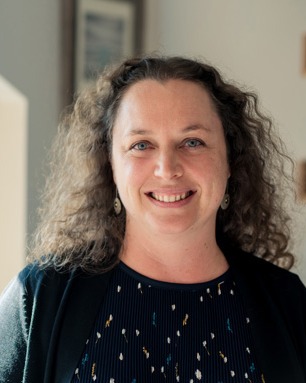 Abnormal protein accumulations of the RNA binding protein TDP-43 are found in almost all instances of amyotrophic lateral sclerosis (ALS), 45% of frontotemporal dementia (FTD), and 30% of Alzheimer’s disease patients. TDP-43 aggregations are associated with a striking nuclear loss of the protein. Dr. Lagier-Tourenne and her team recently demonstrated that the human RNA most affected by loss of nuclear TDP-43 is encoding the neuronal growth-associated factor called stathmin-2. Reduced levels in stathmin-2 is a hallmark in sporadic and familial ALS/FTD, and restoration of stathmin-2 expression emerges as an attractive therapeutic strategy in TDP-43 proteinopathies. Using newly generated cellular and animal models, Dr. Lagier-Tourenne and her team determined stathmin-2’s essential role for neuronal regeneration and axonal maintenance and have established antisense oligonucleotides (ASOs) as a therapeutically viable approach to rescue stathmin-2 in TDP-43 proteinopathies.
Abnormal protein accumulations of the RNA binding protein TDP-43 are found in almost all instances of amyotrophic lateral sclerosis (ALS), 45% of frontotemporal dementia (FTD), and 30% of Alzheimer’s disease patients. TDP-43 aggregations are associated with a striking nuclear loss of the protein. Dr. Lagier-Tourenne and her team recently demonstrated that the human RNA most affected by loss of nuclear TDP-43 is encoding the neuronal growth-associated factor called stathmin-2. Reduced levels in stathmin-2 is a hallmark in sporadic and familial ALS/FTD, and restoration of stathmin-2 expression emerges as an attractive therapeutic strategy in TDP-43 proteinopathies. Using newly generated cellular and animal models, Dr. Lagier-Tourenne and her team determined stathmin-2’s essential role for neuronal regeneration and axonal maintenance and have established antisense oligonucleotides (ASOs) as a therapeutically viable approach to rescue stathmin-2 in TDP-43 proteinopathies.
Clotilde Lagier-Tourenne, MD, PhD, is an associate professor of neurology at the Massachusetts General Hospital and Harvard Medical School. She is a member of the Sean M. Healey & AMG Center for ALS at Mass General and an associate member at the Broad Institute of MIT and Harvard. She trained as a medical geneticist in France and at Columbia University. Her team investigates the molecular mechanisms driving neurodegeneration in amyotrophic lateral sclerosis, frontotemporal dementia, Alzheimer’s disease and Huntington’s disease. She has established collaborations with academic and pharmaceutical partners to develop novel approaches to therapy, including RNA-targeting antisense oligonucleotides and immunotherapies for patients with ALS and FTD.
Clinical Conversations Panel
Senda Ajroud-Driss, MD
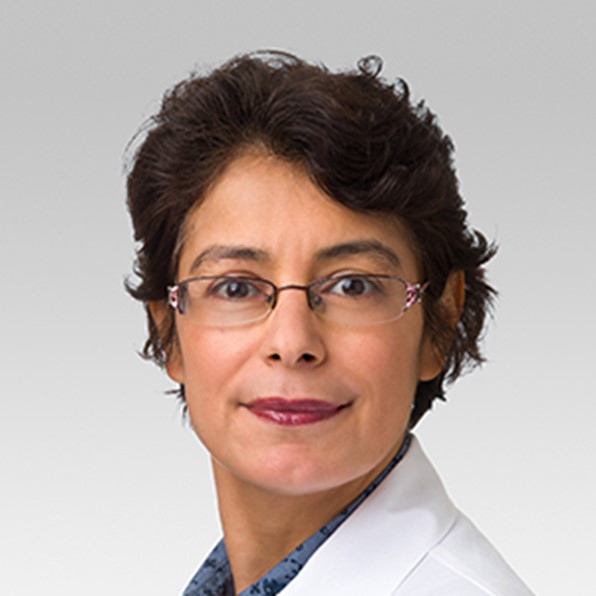 Senda Ajroud-Driss, MD, is an associate professor in the Ken & Ruth Davee Department of Neurology at the Northwestern University Feinberg School of Medicine, where she also serves as program director of the neuromuscular medicine fellowship. Driss received her medical degree from The Medical School of Tunis, Tunisia, then completed her neurology residency at the University of Illinois at Chicago and a neuromuscular fellowship at Northwestern. She is board-certified in neurology and in neuromuscular medicine and has been treating patients with ALS in the Lois Insolia ALS Clinic for the past 16 years. Driss also leads the Les Turner ALS Center’s clinical trial program.
Senda Ajroud-Driss, MD, is an associate professor in the Ken & Ruth Davee Department of Neurology at the Northwestern University Feinberg School of Medicine, where she also serves as program director of the neuromuscular medicine fellowship. Driss received her medical degree from The Medical School of Tunis, Tunisia, then completed her neurology residency at the University of Illinois at Chicago and a neuromuscular fellowship at Northwestern. She is board-certified in neurology and in neuromuscular medicine and has been treating patients with ALS in the Lois Insolia ALS Clinic for the past 16 years. Driss also leads the Les Turner ALS Center’s clinical trial program.
Colin Franz, MD, PhD
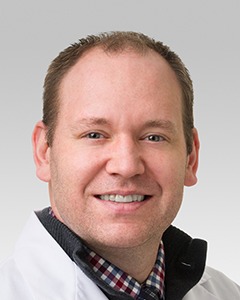 Colin Franz, MD, PhD, is a physician and scientist at the Shirley Ryan AbilityLab and Northwestern University and sees patients at the Lois Insolia ALS Clinic at the Les Turner ALS Center at Northwestern Medicine. His clinical subspecialties include neuromuscular medicine, electrodiagnostic medicine, and neuromuscular ultrasound. He is the director of the Electrodiagnostic (clinical) and Regenerative Neurorehabilitation (research) laboratories at the Shirley Ryan AbilityLab hospital. His research is heavily inspired by the patient populations he cares for. His laboratory team takes a highly technology-oriented approach to precision neurorehabilitation. Some of his current studies include developing transient (resorbable) implanted devices to deliver therapeutics to regenerating axons and making human neurons derived from patient-derived pluripotent stem cells to determine and isolate how individual genetic factors affect neurotrauma outcomes.
Colin Franz, MD, PhD, is a physician and scientist at the Shirley Ryan AbilityLab and Northwestern University and sees patients at the Lois Insolia ALS Clinic at the Les Turner ALS Center at Northwestern Medicine. His clinical subspecialties include neuromuscular medicine, electrodiagnostic medicine, and neuromuscular ultrasound. He is the director of the Electrodiagnostic (clinical) and Regenerative Neurorehabilitation (research) laboratories at the Shirley Ryan AbilityLab hospital. His research is heavily inspired by the patient populations he cares for. His laboratory team takes a highly technology-oriented approach to precision neurorehabilitation. Some of his current studies include developing transient (resorbable) implanted devices to deliver therapeutics to regenerating axons and making human neurons derived from patient-derived pluripotent stem cells to determine and isolate how individual genetic factors affect neurotrauma outcomes.
John M. Coleman III, MD
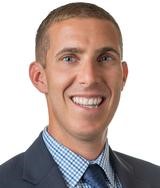 John M. Coleman III, MD, is an associate professor of medicine (pulmonary and critical care) and neurology and a member of the Les Turner ALS Center at Northwestern Medicine. He attended medical school at Loyola University Stritch School of Medicine and completed an internal medicine residency at Loyola Medical Center. He then went to the University Pittsburgh Medical Center for training in pulmonary and critical care medicine and sleep medicine. In 2013, Coleman, with his specialty in chronic respiratory failure, was recruited to Northwestern Feinberg School of Medicine and joined the Les Turner ALS Center. Over the last 10 years, Coleman has been one of two pulmonary physicians in the Lois Insolia ALS Clinic at the Les Turner ALS Center, providing respiratory care and support for people living with ALS. In addition, he serves as the head of the Les Turner Support Services committee and is on the board of directors of the Les Turner ALS Foundation. Coleman has published several papers and delivered international talks on proper respiratory care for people living with ALS.
John M. Coleman III, MD, is an associate professor of medicine (pulmonary and critical care) and neurology and a member of the Les Turner ALS Center at Northwestern Medicine. He attended medical school at Loyola University Stritch School of Medicine and completed an internal medicine residency at Loyola Medical Center. He then went to the University Pittsburgh Medical Center for training in pulmonary and critical care medicine and sleep medicine. In 2013, Coleman, with his specialty in chronic respiratory failure, was recruited to Northwestern Feinberg School of Medicine and joined the Les Turner ALS Center. Over the last 10 years, Coleman has been one of two pulmonary physicians in the Lois Insolia ALS Clinic at the Les Turner ALS Center, providing respiratory care and support for people living with ALS. In addition, he serves as the head of the Les Turner Support Services committee and is on the board of directors of the Les Turner ALS Foundation. Coleman has published several papers and delivered international talks on proper respiratory care for people living with ALS.
Lauren Webb, LCSW
 Lauren Webb, LCSW, is director of support services and education at the Les Turner Foundation. Webb has worked in the neuromuscular community for over 20 years—providing direct patient care for individuals with ALS, working for a neurological specialty reference laboratory, coordinating clinical trials at Ann and Robert H. Lurie Children’s Hospital of Chicago and overseeing the Muscular Dystrophy Association’s nationwide Care Center Network. She has a master’s degree in social work with a concentration in health administration and policy from the University of Chicago. Webb is a devoted advocate who approaches people and problems with humility, curiosity and humor.
Lauren Webb, LCSW, is director of support services and education at the Les Turner Foundation. Webb has worked in the neuromuscular community for over 20 years—providing direct patient care for individuals with ALS, working for a neurological specialty reference laboratory, coordinating clinical trials at Ann and Robert H. Lurie Children’s Hospital of Chicago and overseeing the Muscular Dystrophy Association’s nationwide Care Center Network. She has a master’s degree in social work with a concentration in health administration and policy from the University of Chicago. Webb is a devoted advocate who approaches people and problems with humility, curiosity and humor.
Closing Remarks
Andrea Pauls Backman, MBA
 Andrea Pauls Backman, MBA, has been Chief Executive Officer of the Les Turner ALS Foundation since 2015. She brings both a professional and personal passion to the ALS/MND community having cared for and lost her mother, Sally, to the disease in 2010. She came to the ALS field following a 30-year career in business management as an institutional investment manager, including as a managing director at several investment firms, and brings more than 15 years of nonprofit board management experience. She has served on the Board of Directors of the International Alliance of ALS/MND Associations since 2019 and is the board liaison to its Scientific Advisory Council. Pauls Backman holds a master's degree in business administration from DePaul University and is a certified public accountant.
Andrea Pauls Backman, MBA, has been Chief Executive Officer of the Les Turner ALS Foundation since 2015. She brings both a professional and personal passion to the ALS/MND community having cared for and lost her mother, Sally, to the disease in 2010. She came to the ALS field following a 30-year career in business management as an institutional investment manager, including as a managing director at several investment firms, and brings more than 15 years of nonprofit board management experience. She has served on the Board of Directors of the International Alliance of ALS/MND Associations since 2019 and is the board liaison to its Scientific Advisory Council. Pauls Backman holds a master's degree in business administration from DePaul University and is a certified public accountant.
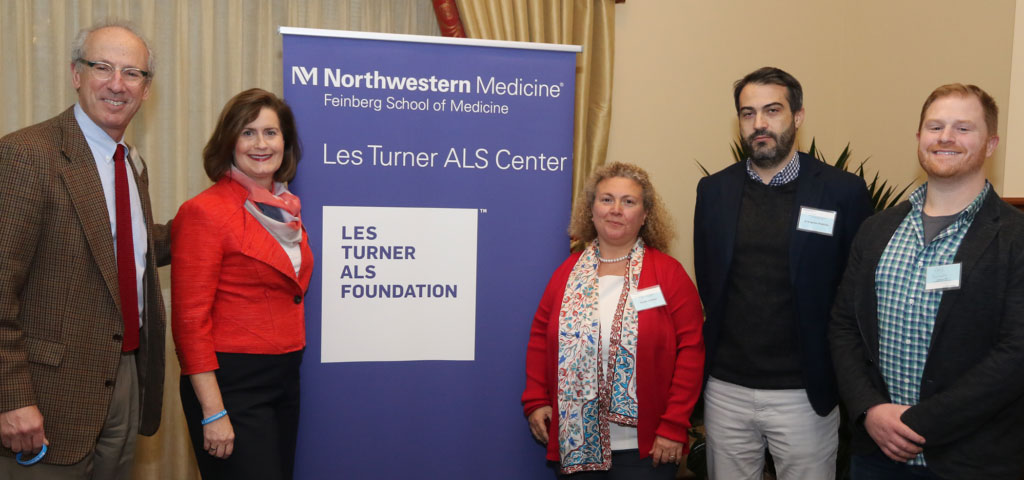
Location:
Prentice Women’s Hospital
Conference Room L (Floor 3)
250 E. Superior St.
Chicago, IL 60611
Share this Page
Thank You to Our Generous 2022 Sponsors
